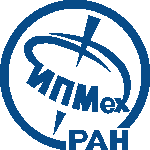
|
ИСТИНА |
Войти в систему Регистрация |
ИПМех РАН |
||
Physiological responses to acute hypoxia in neonatal ratsдоклад на конференции
- Авторы: Sebentsova E., Sukhanova I., Myasoedov N., Vysokikh M., Levitskaya N.
- Международная Конференция : 9th FENS Forum of Neuroscience.
- Даты проведения конференции: 5-9 июля 2014
- Дата доклада: 8 июля 2014
- Тип доклада: Стендовый
- Докладчик: не указан
- Место проведения: Milan, Italy., Italy
-
Аннотация доклада:
Hypoxia in newborn infants is the main cause of brain damage in neonatal period. Hypoxia can be chronic or acute and may differ in exposure time but eventually it results in CNS trauma due to accumulation of toxic unoxidized metabolites and carbon acid in organism. Thus, the studies of perinatal hypoxia effects on organism and methods of it correction are of current interest. The aim of this study was to examine the physiological effects of acute normobaric neonatal hypoxia in rat pups both sexes. In the experiment 12 litters was used. Two thirds of each litter underwent acute hypoxia at 8% O2 for 2 h on second postnatal day (pnd 2). In next two weeks part of hypoxic pups received intranasal vehicle injections (Hyp) and other part had intranasal injections of heptapeptide Semax (analogue of ACTH4-10) (Hyp-Sem) daily. Control group of animals (Cont) was held at normal O2 level on pnd 2 and received intranasal vehicle injections. It was shown that hypoxia used leads to 7% mortality in rat pups. The studies of long-term effects of hypoxia have shown Hyperactivity syndrome in surviving animals: rats in group Hyp had significant increase in vertical and horizontal activity in open field test. However, animal behavior from group Hyp-Sem doesn’t differ from behavior of control group of animals. According to these, we can summarize that acute normobaric hypoxia for 2 h at 8% O2 level leads to early brain dysfunctions which can be partly corrected with Semax.
- Добавил в систему: Суханова Юлия Алексеевна